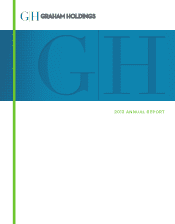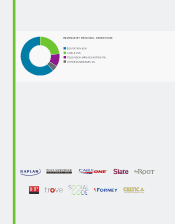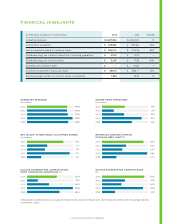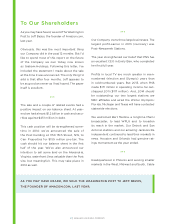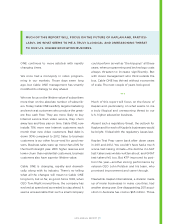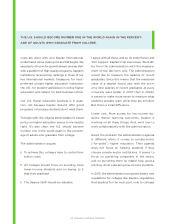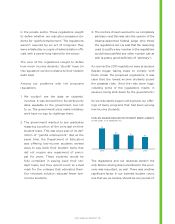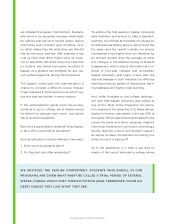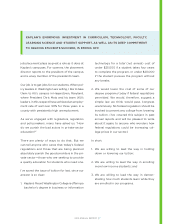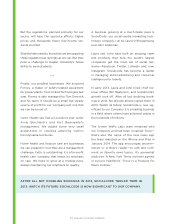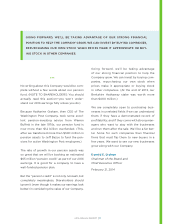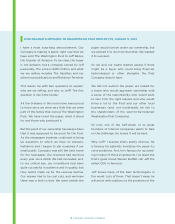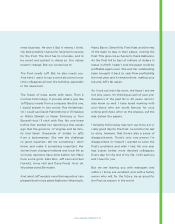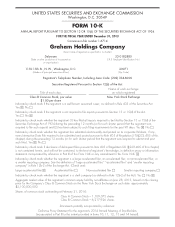Washington Post 2013 Annual Report Download - page 6
Download and view the complete annual report
Please find page 6 of the 2013 Washington Post annual report below. You can navigate through the pages in the report by either clicking on the pages listed below, or by using the keyword search tool below to find specific information within the annual report.
4 | GRAHAM HOLDINGS COMPANY
costs are done with, and Kaplan International,
under David Jones, looks good as 2014 begins. We
see plenty of room for growth ahead, and we start
with a platform of high-quality programs. Kaplan’s
institutions received top rankings in three of our
key international markets: Singapore, for most-
preferred private higher education institution;
the U.K., for student satisfaction in online higher
education; and Ireland, for best business school.
Our U.S. higher education business is in ques-
tion, not because Kaplan doesn’t oer good
programs or because students don’t want them.
To begin with, the Obama administration’s broad
policy on higher education seems to me exactly
right. It’s also clear: the U.S. should become
number one in the world again in the percent-
age of adults who graduate from college.
The administration argues:
3
To achieve this, colleges have to control their
tuition costs.
3
All colleges should focus on enrolling more
lower-income students and on seeing to it
that they graduate.
3
The degree itself should be valuable.
I agree with all these, and so do Andy Rosen and
Tom Leppert, Kaplan’s top executives. We’d dif-
fer from the administration with the measure-
ment of the last item only. The administration
would like to measure the salaries of recent
graduates. Since this means that the measured
value of a degree would vary with the econ-
omy (the salaries of recent graduates at every
university were better in 2007 than in 2009),
it seems to make more sense to measure what
students actually learn while they are enrolled.
But this is a small dierence.
Lower cost. More access for low-income stu-
dents. Better learning outcomes. Kaplan is
working on all these things. And, we’d love to
work collaboratively with the administration.
Here’s the problem: the administration’s agenda
is dierent when it comes to private-sector
(“for-profit”) higher education. Their agenda
does not focus on helping students if they
choose private-sector institutions. It seems to
focus on punishing companies in the sector,
and on punishing them no matter how good a
job they do at educating low-income students.
In 2010, the administration proposed drastic new
regulations for colleges like Kaplan—regulations
that applied, for the most part, only to colleges
THE U.S. SHOULD BECOME NUMBER ONE IN THE WORLD AGAIN IN THE PERCENT-
AGE OF ADULTS WHO GRADUATE FROM COLLEGE.

